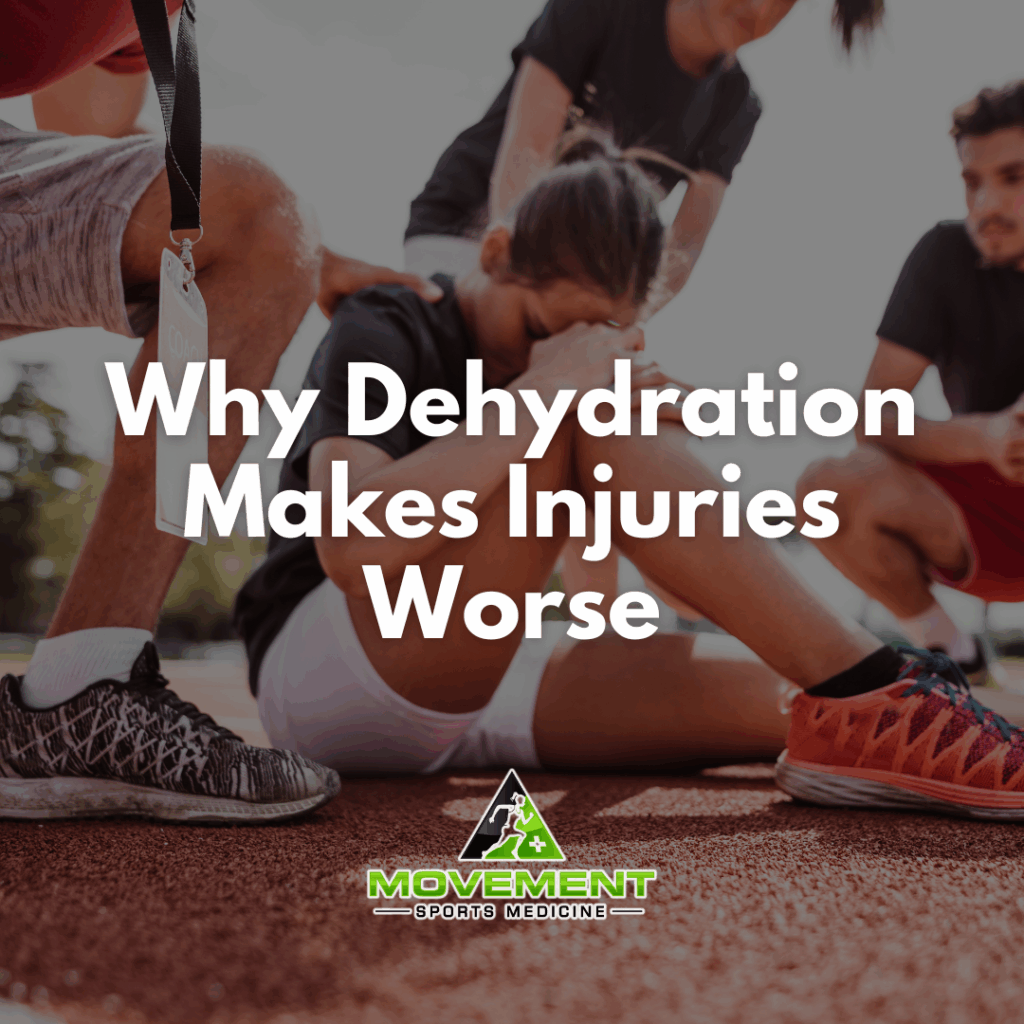Why Dehydration Makes Injuries Worse (and Recovery Slower)
When most athletes think about how injuries happen, they picture the wrong step, awkward landing, or unlucky collision. But there’s a less obvious factor that plays a critical role in injury severity and recovery timelines:
Hydration status at the moment of injury.
It’s not just a performance issue. Dehydration directly impacts tissue resilience — especially in ligaments, tendons, and soft tissue. And the data is clear: tissues that are dry, stiff, and undernourished are significantly more prone to tearing than stretching.
Ligaments Are Mostly Water
Ligaments and tendons are composed of dense collagen fibers suspended in a gel-like matrix — and water makes up about 70% of that structure. This hydration allows these tissues to:
- Absorb force
- Stretch slightly under load
- Rebound and return to shape
When you’re well-hydrated, your ligaments maintain elasticity and tensile strength. But when you’re dehydrated — even slightly — they become less elastic and more brittle.
Less Elasticity = More Risk
Think of a dry rubber band. It snaps easily. Now compare that to a well-hydrated, flexible band — it stretches and recovers.
Here’s how that translates on the field or court:
- An ankle that rolls inward on a cut may stretch and rebound if hydrated.
- The same movement in a dehydrated athlete can result in a high-grade sprain or even ligament rupture.
- ACLs, in particular, under rotation or valgus force, are more likely to tear if the tissue is stiff and dry.
Injuries still happen in hydrated athletes, of course. But in many cases, hydration can be the difference between a mild sprain and a complete tear.
Dehydration Doesn’t Just Affect the Moment of Injury — It Slows Healing Too
In the hours and days following injury, your body needs:
- Inflammation control
- Nutrient delivery
- Collagen production
- Tissue remodeling
Each of those biological processes relies on adequate fluid availability and optimal blood flow. Dehydration creates a systemic bottleneck that slows everything down:
- Less plasma volume means reduced circulation to injured tissue
- Delayed removal of waste products slows recovery
- Reduced nutrient delivery affects collagen synthesis and cell repair
End result? Longer return-to-play timelines, more swelling, and increased likelihood of complications like joint stiffness or scar tissue formation.
Real-World Scenarios
This isn’t just theoretical. We see the impact of dehydration on injury outcomes every week:
- An athlete comes in after a weekend tournament dehydrated and sore. A simple ankle roll becomes a Grade II sprain, not the mild tweak it could’ve been.
- A high school soccer player tears their ACL during a hot practice with no water breaks in 90 minutes. Was the injury preventable? Not entirely. But tissue hydration could’ve reduced the likelihood or severity.
- An athlete recovering from surgery struggles to progress because they’re under-hydrated — delaying everything from range of motion gains to soft tissue healing.
What We Tell Our Athletes
Hydration isn’t optional during rehab. It’s one of the most controllable variables in injury prevention and recovery.
Here’s the non-negotiable hydration plan we give athletes:
✅ 100 oz of water daily — that’s your baseline
✅ More if sweating heavily, training outdoors, or using a sauna
✅ Add electrolytes during rehab or return-to-play sessions, especially in the heat
✅ Don’t wait for thirst — by the time you feel it, tissue performance is already compromised
Final Thoughts: Control What You Can
Athletes can’t control every variable. No one plans to get hurt. But hydration is a simple, science-backed strategy that directly affects tissue health, injury risk, and recovery speed.
If you want to reduce the odds of a serious injury — or recover faster when one happens — start with your water bottle.
Dehydration is not just a performance issue. It’s a structural risk.
Need help building a recovery plan that covers strength, hydration, tissue health, and return-to-play benchmarks?
Our team at Movement Sports Medicine works with athletes of all levels to bridge the gap between rehab and full performance. Book an assessment and let’s build your comeback the right way.
Be Great Today,
Mason



